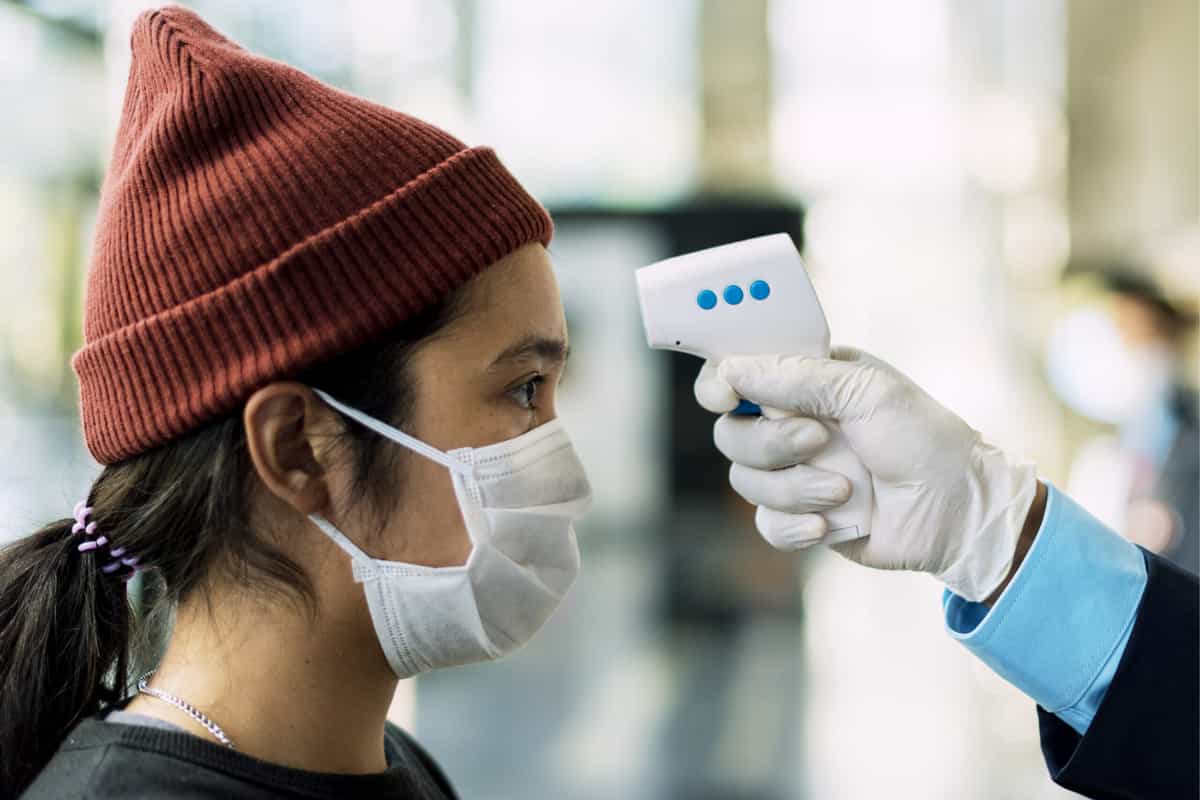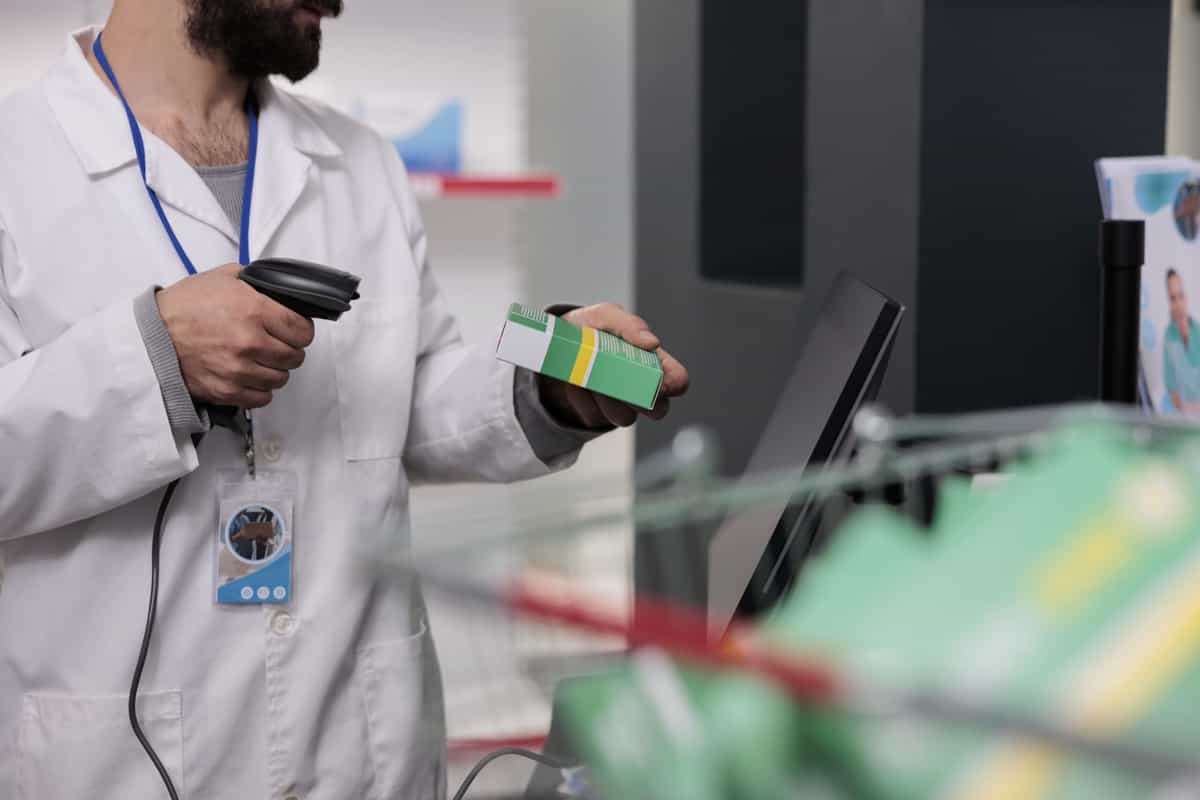RFID technology in hospitals is transforming patient care and operations by providing real-time tracking, inventory management, and improved patient monitoring. This article covers the top uses of RFID hospital technology in healthcare to enhance efficiency and safety.
Key Takeaways
– RFID technology significantly enhances hospital operations by providing real-time visibility into asset and patient locations, improving resource allocation and reducing administrative burdens.
– The implementation of RFID systems improves patient safety through accurate patient identification, medication administration verification, and effective infection control measures.
– Despite its benefits, RFID adoption faces challenges such as economic, technical, and organizational barriers, necessitating a thorough cost-benefit analysis and staff training for successful implementation.
Revolutionizing Hospital Operations with RFID Technology

The healthcare sector is experiencing significant growth in the application of RFID technology, which is transforming healthcare operations in the healthcare industry. RFID technology enhances efficiency, security, and patient care within hospitals by providing real-time visibility into the location and status of assets and patients. Imagine the relief of healthcare providers when they can instantly locate a critical piece of equipment or track a patient’s journey through the hospital without any delays.
RFID streamlines operations by minimizing losses, ensuring the availability of equipment, and automating compliance documentation. This not only reduces operational costs but also allows medical staff to focus more on patient care rather than administrative tasks. Efficient resource allocation through RFID technology significantly improves operational efficiency and reduces administrative burdens, creating a more patient-centric environment.
The transformative impact of RFID technology in healthcare is undeniable. Hospitals can enhance their operational processes, improve patient safety, and provide better care through RFID. Understanding the role of RFID in medical equipment management is the first step into its application in healthcare.
Enhancing Medical Equipment Management with RFID Systems
RFID technology is essential for successful medical asset management, offering precise tracking of a wide range of healthcare assets, including:
Surgical trays
Medical devices
Point-of-care equipment
Pharmaceuticals
Textiles By leveraging RFID technologies, hospitals can ensure that critical medical equipment is always available when needed, reducing downtime and improving patient outcomes.
The benefits of RFID in medical equipment management are vast, encompassing real-time asset tracking, automated inventory management, asset utilization, and maintenance scheduling and compliance. Each of these aspects plays a crucial role in ensuring that healthcare facilities operate smoothly and efficiently.
Each of these benefits will be examined in detail.
Real-Time Asset Tracking
RFID technology enhances the tracking and availability of critical medical equipment, providing real-time visibility into the location and usage of assets. This real-time asset tracking minimizes delays, optimizes resource allocation, and ensures compliance within healthcare facilities. Imagine a scenario where medical staff can instantly locate a life-saving device during an emergency, thanks to RFID tracking.
The ability to provide precise location data for medical equipment reduces the time spent searching for items, thereby enhancing operational efficiency and patient care. Additionally, RFID improves lab sample accurate tracking by enhancing traceability and ensuring correct matching of samples to patient records, thereby reducing errors.
Automated Inventory Management
Automated inventory management systems enhance inventory management by automatically updating stock levels and reducing the chances of stockouts. By automating inventory processes, RFID technology helps prevent waste due to expired medical supplies and ensures accurate inventory levels, including tracking the expiration date to streamline inventory management.
RFID technology automates stock replenishment, streamlining the automation of inventory tracking in hospitals and ensuring that supplies are always available when needed. This reduces human error and ensures accurate records of medical supplies, significantly improving operational efficiency and reducing risks associated with manual handling.
Maintenance Scheduling and Compliance
RFID systems help maintain compliance by automating equipment calibration schedules and maintenance records. This ensures that medical equipment is always in good working condition, reducing the risk of equipment failure during critical procedures and improving patient safety.
Proper maintenance scheduling and compliance are crucial for ensuring patient safety. By automating these processes, RFID systems help healthcare facilities adhere to healthcare regulations and maintain high standards of care. This not only enhances patient safety but also builds trust in the healthcare system.
Improving Patient Safety with RFID Technology

RFID technology plays a crucial role in enhancing patient safety by tracking movements and ensuring accurate medication administration and treatment. Patient tracking and care quality are significantly improved, as RFID minimizes delays and enhances monitoring of patients. Imagine a healthcare environment where every patient’s location and status are monitored in real-time, ensuring timely and accurate care.
Customized RFID solutions can significantly enhance compliance with healthcare regulations by automated tracking and reporting processes, including the management of medical records. Overall, RFID technology transforms patient safety and care, promoting efficiency and accuracy within healthcare systems.
Let’s explore how RFID improves patient safety initiatives through accurate patient identification, medication administration accuracy, and infection control.
Accurate Patient Identification
Accurate patient identification is crucial to patient safety, as misidentification can lead to medical errors. RFID technology enhances the accuracy of patient identification, thereby reducing the chances of medical errors related to misidentification. Imagine the peace of mind that comes with knowing that every patient is accurately identified and receives the correct treatment.
RFID wristbands enhance patient safety by securely storing patient information to ensure accurate identification. The implementation of RFID systems not only streamlines patient identification but also fosters improved communication among healthcare providers, leading to better patient care.
Medication Administration Accuracy
RFID technology plays a crucial role in verifying medication administration, ensuring that the right patient receives the correct medication at the right dosage. By using RFID systems, healthcare providers can minimize medication errors, enhancing the reliability of treatment plans and patient care.
Accurate medication administration is crucial in healthcare to ensure patient safety and reduce the risk of adverse drug events. Ultimately, the implementation of RFID technology in medication administration leads to improved patient outcomes and increased trust in healthcare systems.
Infection Control
RFID can help in tracking the sterilization status of surgical instruments, ensuring they are safe for use in procedures. RFID tags can withstand extreme sterilization methods, including:
Medical Autoclave
E-Beam
EtO
Gamma Irradiation This robustness ensures that RFID systems can be used effectively in infection control.
Infection control is critical in healthcare to prevent the spread of infections and ensure patient safety. The use of RFID technology in infection control provides reliable tracking of medical instruments and enhances overall patient safety.
Streamlining Hospital Workflow and Efficiency
RFID helps streamline processes and ensures better resource allocation in hospitals by:
Effectively tracking various medical assets, including surgical tools and pharmaceuticals
Enhancing the automation of operations through contactless tracking at both item and bulk levels
Reducing stockouts and waste in inventory management for pharmacies
Improving patient safety and operational efficiency
RFID systems improve patient safety by enabling real-time tracking of patients and staff, which helps in reducing medical errors. The long-term return on investment is significant as RFID can lead to substantial savings and improved efficiency over time.
Let’s explore how RFID streamlines hospital workflow through patient flow management, staff coordination and communication, and optimized resource allocation.
Patient Flow Management
RFID enables immediate access to patient location and status updates, which helps streamline patient flow in hospitals. Hospitals can monitor patient locations in real-time, helping to reduce wait times and enhance overall patient flow.
RFID technology assists in predicting patient movement, allowing hospitals to better manage workloads and resource allocation. By monitoring patient flow in real-time, RFID systems assist healthcare facilities in optimizing resource deployment and minimizing wait times.
Staff Coordination and Communication
The use of RFID can optimize communication among healthcare staff by:
Improving their ability to respond promptly to patient needs.
Allowing healthcare staff to quickly locate colleagues and necessary medical equipment.
Enhancing teamwork and response times.
Involving frontline healthcare professionals in the planning process can reduce resistance to new RFID systems and foster support for implementation. Continuous training and support for staff are essential to ensure effective use of RFID technology and to alleviate concerns about workflow disruptions.
Optimized Resource Allocation
RFID systems help ensure that critical medical resources are consistently available, reducing delays in patient care. Real-time tracking of medical assets enables hospitals to ensure that critical equipment is correctly allocated and readily available when needed.
By monitoring equipment usage patterns effectively, hospitals can ensure that critical medical devices are available when needed, optimizing resource allocation and improving patient care. RFID facilitates tracking of medical supplies and lost or misplaced equipment, ensuring that resources are used efficiently and are available when required.
Ensuring Data Security and Privacy in Healthcare RFID Implementations
Data privacy and security concerns are critical in RFID implementation, necessitating robust encryption and access controls to protect sensitive patient information. Encryption can be employed on the reader side to secure sensitive data stored in RFID tags. However, the unique identifier system used in RFID facilitates easy tracking, raising privacy concerns for patients.
Wireless communication in RFID systems can be exploited by attackers to access sensitive patient data from a distance. The low-cost design of passive radio frequency identification rfid tags limits the implementation of robust security measures in an rfid system.
New standards are being developed to provide stronger security options for RFID systems in healthcare. Ensuring data security and privacy is essential for maintaining trust and compliance in healthcare environments.
Scalability and Customization of RFID Solutions for Hospitals

RFID solutions can be tailored to fit the specific requirements of various healthcare environments, from large hospitals to specialized clinics. The customization of RFID systems allows for seamless integration into existing hospital workflows, enhancing operational efficiency. RFID in healthcare can significantly improve tracking and management processes.
RFID technologies are designed to be scalable, accommodating the growth and changing needs of healthcare settings. Leasing RFID equipment can help organizations spread the initial costs over time and access newer technology without a large upfront investment.
RFID technology can effectively manage high-value tracking medical equipment, ensuring it is monitored and secured appropriately across different healthcare facilities using a medical device and an rfid device to leverage RFID technology offers.
Overcoming Challenges in RFID Adoption in Hospitals
Common barriers to RFID implementation in healthcare include economic, technical, organizational, privacy, and security challenges. Overcoming these barriers requires extensive financial analysis, thorough technology testing, staff education, and appropriate security measures.
Risks associated with RFID technology implementation in healthcare can be characterized as:
Economic challenges
Technical challenges
Organizational challenges
Legal challenges
One significant barrier to RFID implementation is the integration with existing healthcare systems, which requires coordination and can be complex. Strategies to address these challenges will be explored in the subsections below.
Cost-Benefit Analysis
Organizations should conduct a cost-benefit analysis prior to implementing RFID technology to justify the investment. A major challenge with RFID technology is related to its costs. It’s essential to ensure a positive return on investment (ROI). The cost range of an RFID tag can vary from four cents to $50.00 per tag.
Better inventory tracking enabled by RFID technology can help manage healthcare costs by limiting waste. Organizations must analyze the economic impact of RFID implementation to overcome cost concerns.
Technical Limitations and Interference
RFID technology faces various technical challenges in hospital environments, particularly related to signal reliability. Complex hospital environments, including dense metal structures, pose significant challenges for RFID signal reliability.
Using specialized on-metal RFID solutions can help overcome signal disruptions in areas with significant metal presence. On-metal RFID solutions ensure reliable data capture in complex environments and are essential for addressing RFID technology limitations.
Staff Training and Change Management
Effective implementation of RFID systems in hospitals requires comprehensive training for staff to ensure they understand new processes and technologies. Staff buy-in is crucial for the successful adoption of RFID technology, as their engagement directly impacts operational efficiency.
Training programs should be tailored to different hospital management roles, including bed managers, nursing staff, and housekeeping teams, to maximize effectiveness. Pilot testing RFID systems in specific departments can help identify potential issues and streamline the integration process before full-scale implementation in the health system.
Data analytics from RFID systems can provide valuable insights into staff performance and operational patterns, further aiding in access data collection, training, and optimization efforts.
Summary
RFID technology is transforming the healthcare sector by enhancing operational efficiency, improving patient safety, and streamlining workflows. From real-time asset tracking to accurate patient identification and medication administration, RFID offers numerous benefits that ultimately lead to better patient outcomes and a more efficient healthcare system.
As we look to the future, the potential of RFID technology in healthcare is immense. By addressing challenges such as cost, technical limitations, and staff training, healthcare organizations can fully leverage the capabilities of RFID to create safer and more efficient healthcare environments. The journey towards a more technologically advanced healthcare system is well underway, and RFID technology is at the forefront of this transformation.
































